Article
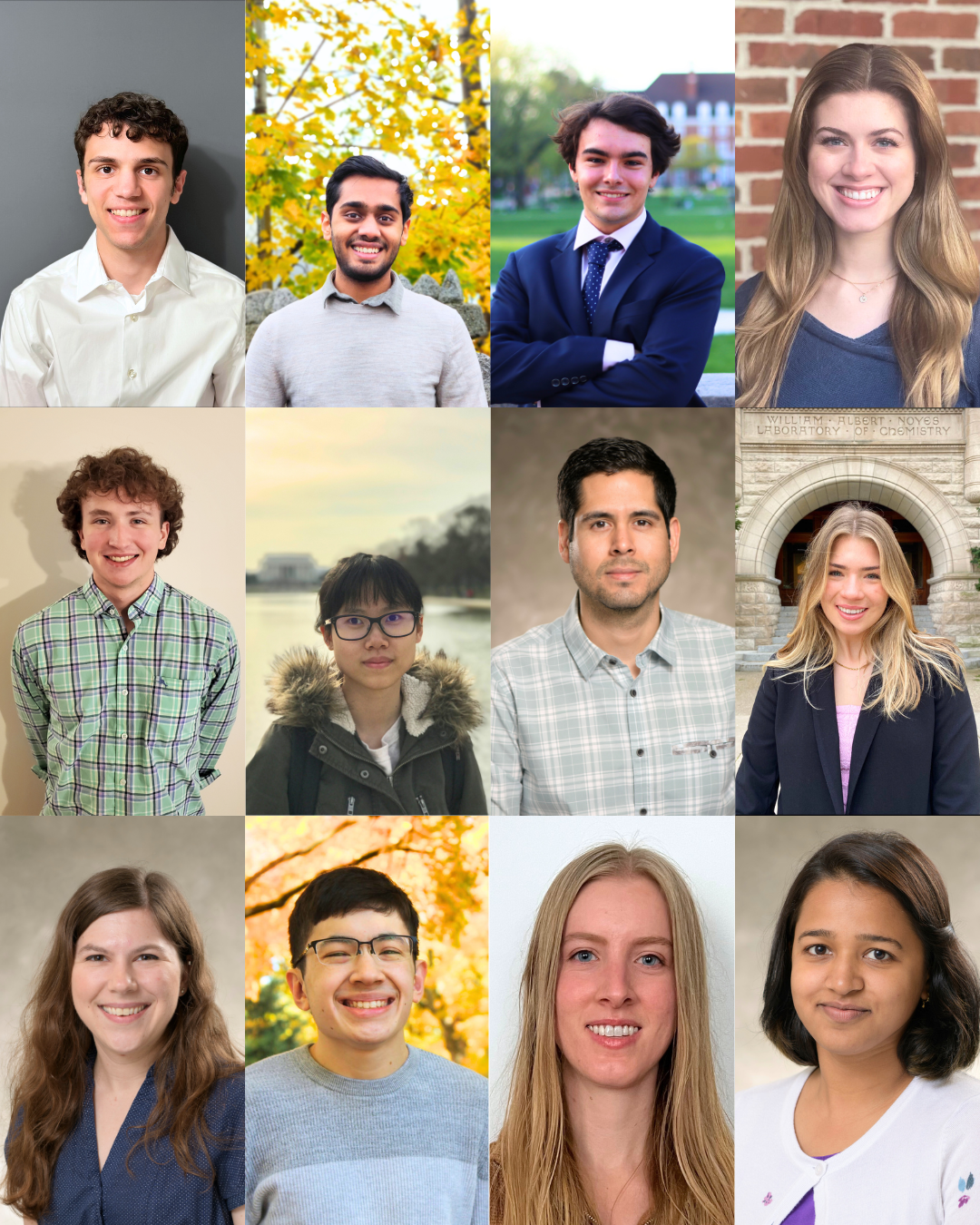
Twelve students have been selected to receive 2023 Beckman Institute fellowships and awards. The awards, which fund interdisciplinary research that takes place over the summer, will be celebrated at a poster session on July 28. Read on to learn about the awards and honorees and stay tuned for updates about their summer projects.
2023 Beckman Institute Undergraduate Fellowships
The Beckman Institute Undergraduate Fellows Program provides undergraduate students with a $3,000 award to pursue interdisciplinary research at the Beckman Institute during the summer. Entering its seventh year, the program is supported by funding from the Arnold and Mabel Beckman Foundation.
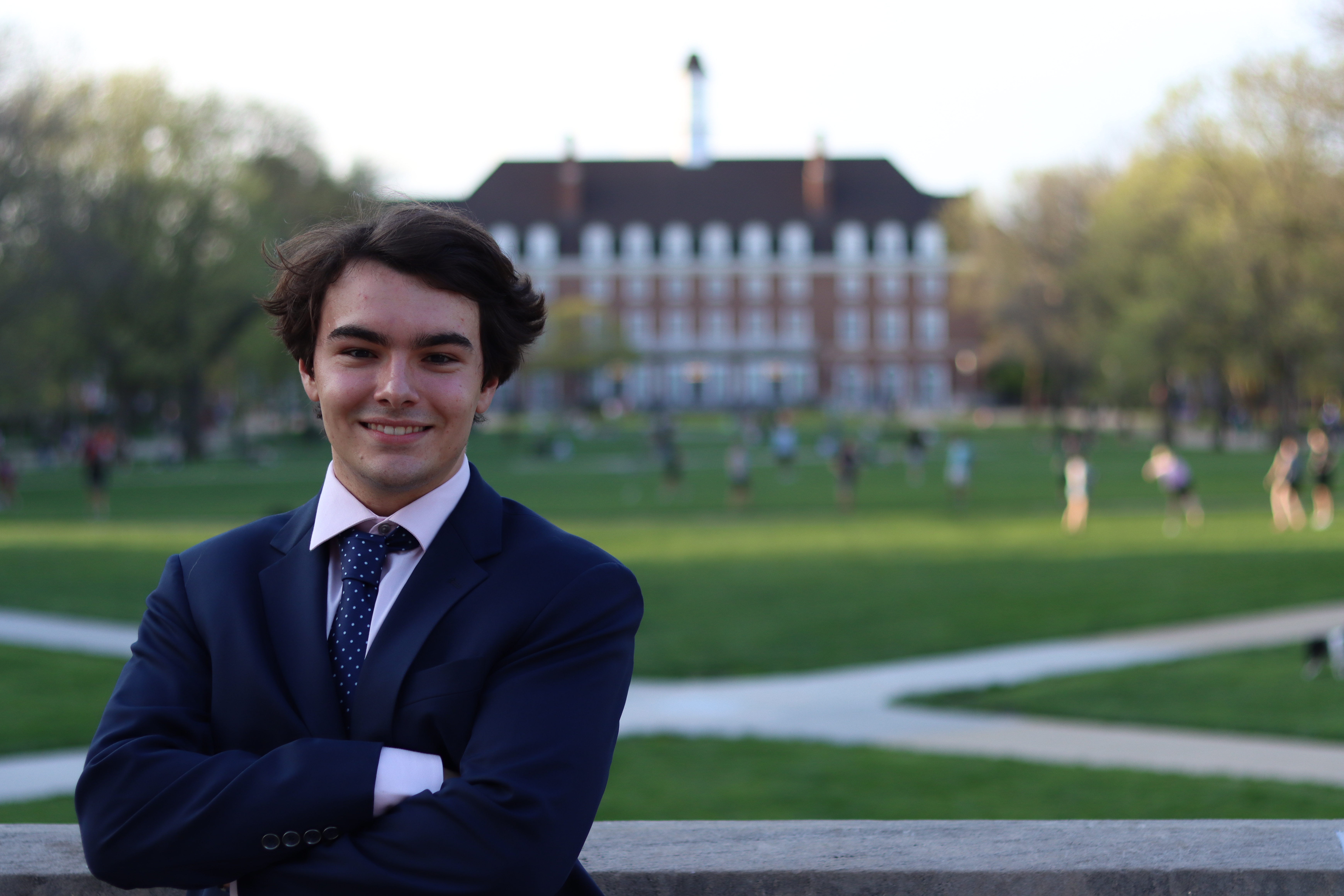 Gabriel Graham, psychology.
Gabriel Graham, psychology.Gabriel Graham is majoring in psychology with a concentration in behavioral neuroscience. His Beckman faculty collaborator is Justin Rhodes, a professor of psychology.
"We are working on two projects. The first seeks to make the first transgenic line of clownfish to allow us to alter the genes of specific brain regions we are interested in studying in the future. The second project involves us analyzing the brains, gonads, and hormones of clownfish undergoing natural sex change so we can better understand how to brain orchestrates these drastic changes in the fish."
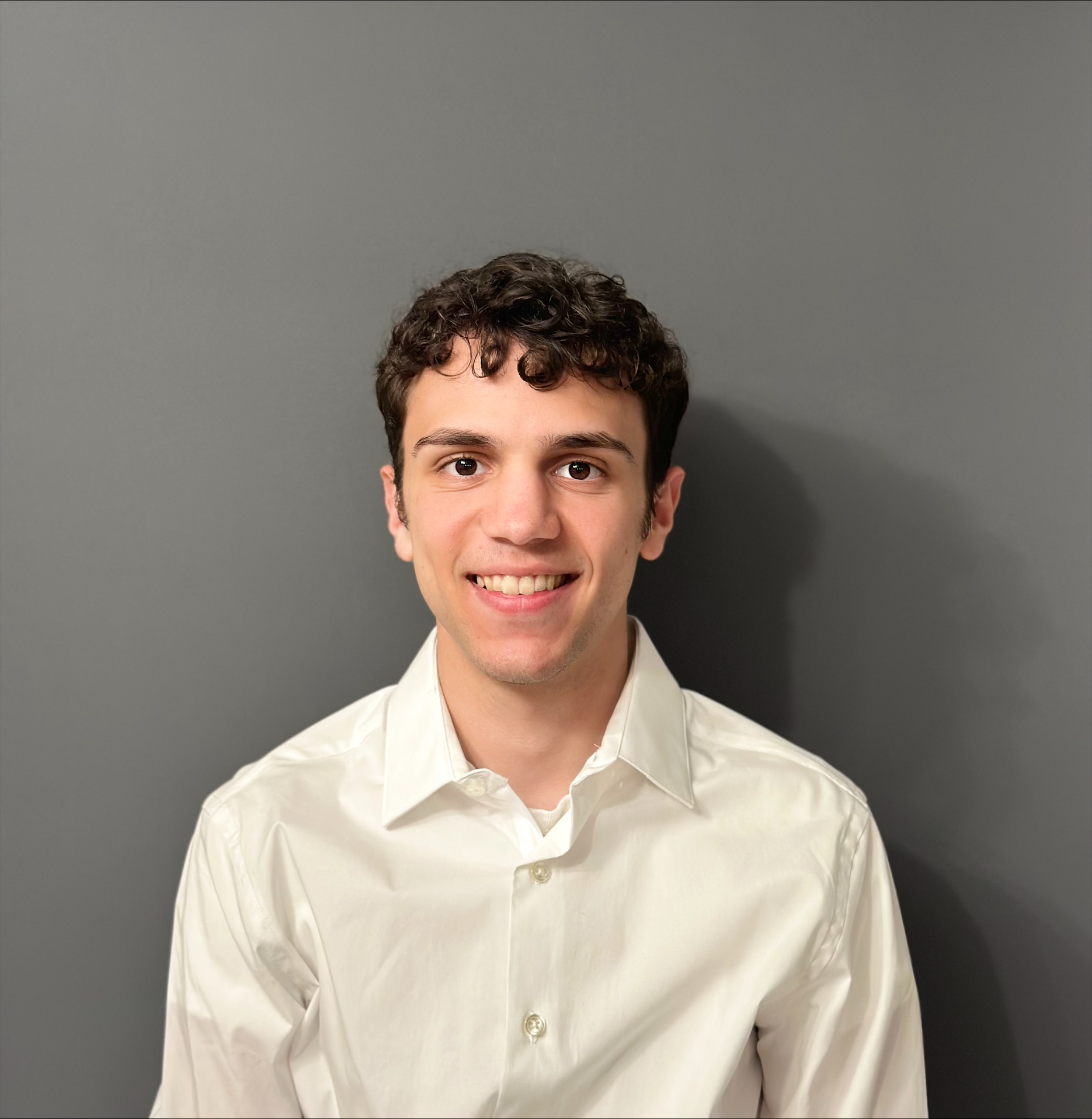 Andy Nisipeanu, School of Molecular and Cellular Biology Honors Concentration.
Andy Nisipeanu, School of Molecular and Cellular Biology Honors Concentration.Andy Nisipeanu is a student in the School of Molecular and Cellular Biology Honors Concentration. His Beckman faculty collaborator is Martha Gillette, a professor of cell and developmental biology.
"The blood-brain barrier is more permeable at certain times of day. Tight junction proteins, including zonula occluden-1, or ZO-1, are responsible for blocking harmful substances from entering the brain paracellularly. My goal is to find the times of day when ZO-1 is expressed to determine when the blood-brain barrier is more permeable. This has significant implications for determining the role of the circadian clock in blood-brain barrier permeability by tight junction alteration. The results can contribute to therapeutic development for neurological disorders such as stroke and Alzheimer's disease."
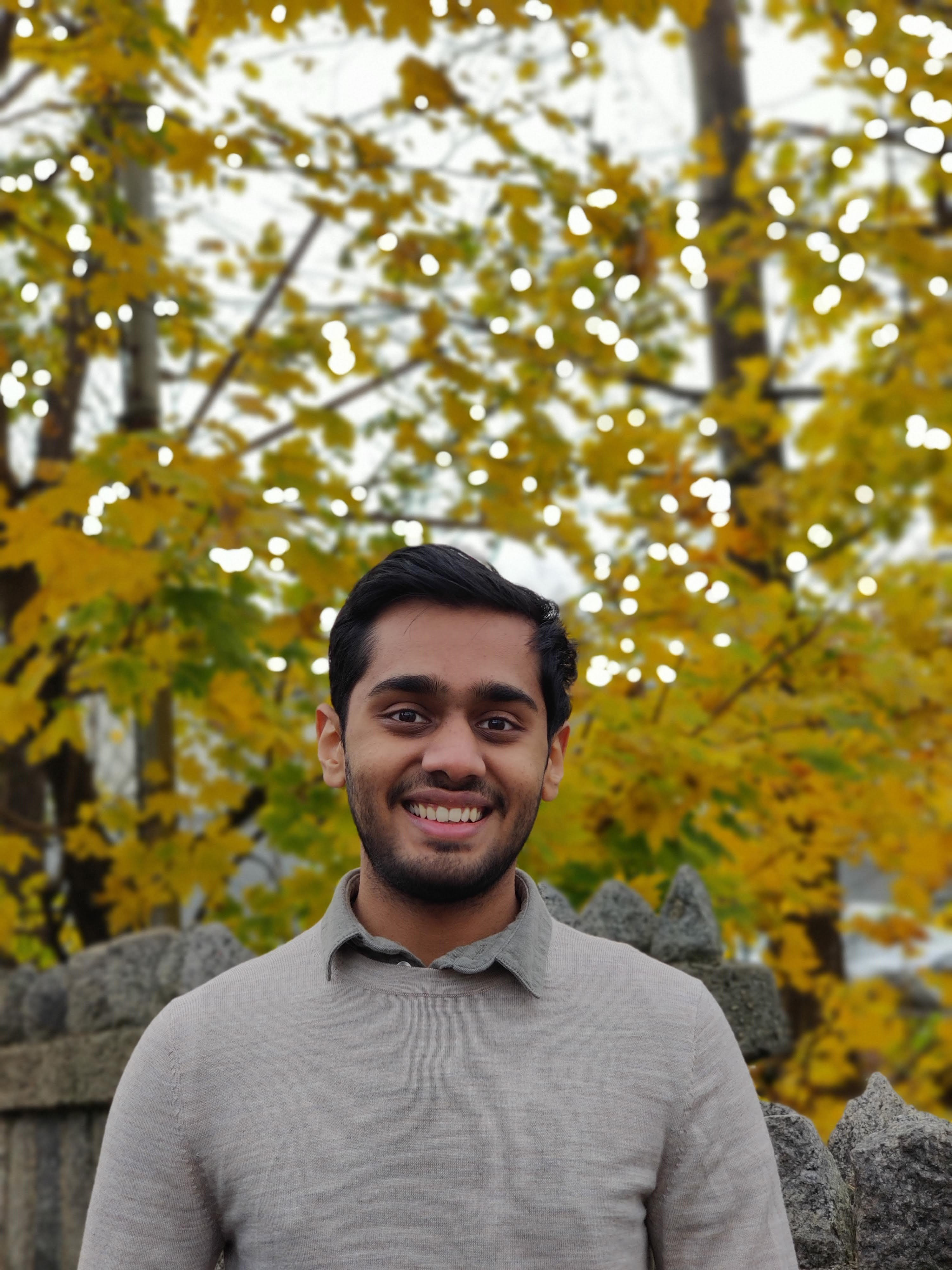 Manan Sanghavi, brain and cognitive science
Manan Sanghavi, brain and cognitive scienceManan Sanghavi is majoring in brain and cognitive science. His Beckman faculty collaborators are Aaron Anderson, the assistant director of Beckman's Biomedical Imaging Center; Dr. Graham Huesmann, a research assistant professor of molecular and integrative physiology; and Fan Lam, an assistant professor of bioengineering.
"Medial temporal lobe epilepsy, or MTLE, is the most common form of focal epilepsy and is often diagnosed through traditional clinical structural MRI scans. My research project investigates the effectiveness of a novel, more sensitive imaging technique called magnetic resonance elastography, or MRE, in the early detection of MTLE in epileptic patients. In analyzing hippocampal tissue through MRE, we believe that this method could play an integral role in acting as a biomarker in the early diagnosis of MTLE."
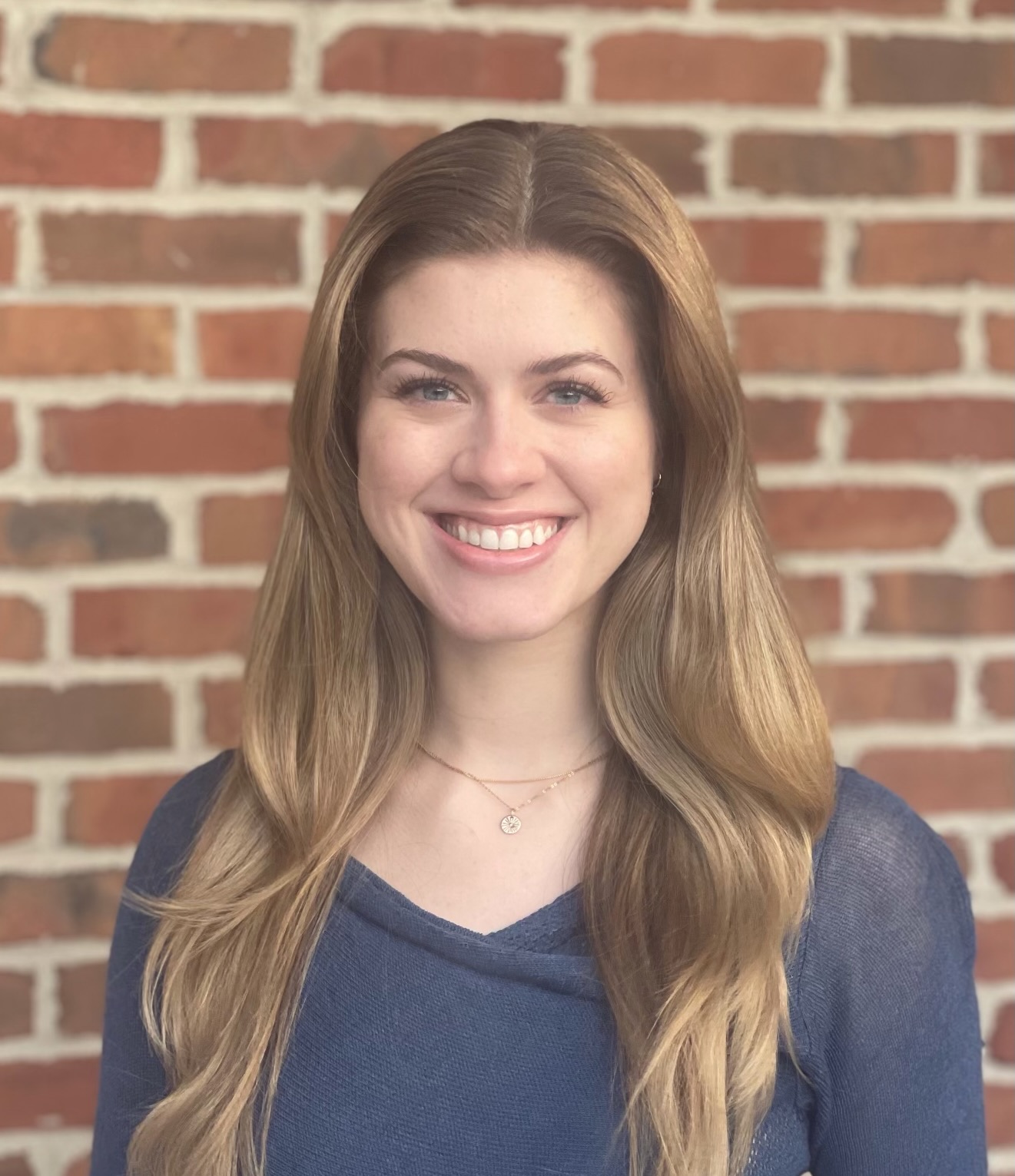 Liz Soellner, neuroscience and sociology.
Liz Soellner, neuroscience and sociology.Liz Soellner is a junior double-majoring in neuroscience and sociology. Her Beckman faculty collaborator is Benjamin Auerbach, an assistant professor of molecular and integrative physiology.
"I am examining sensory processing difficulties in a transgenic rat model of Fragile X Syndrome, a common genetic form of autism. I will do so by measuring audiogenic seizure susceptibility and severity in FXS rats. These results could contribute to the development of clinical therapies targeting the debilitating manifestations of sensory dysregulation (i.e., auditory overstimulation) experienced by individuals with autism.”."
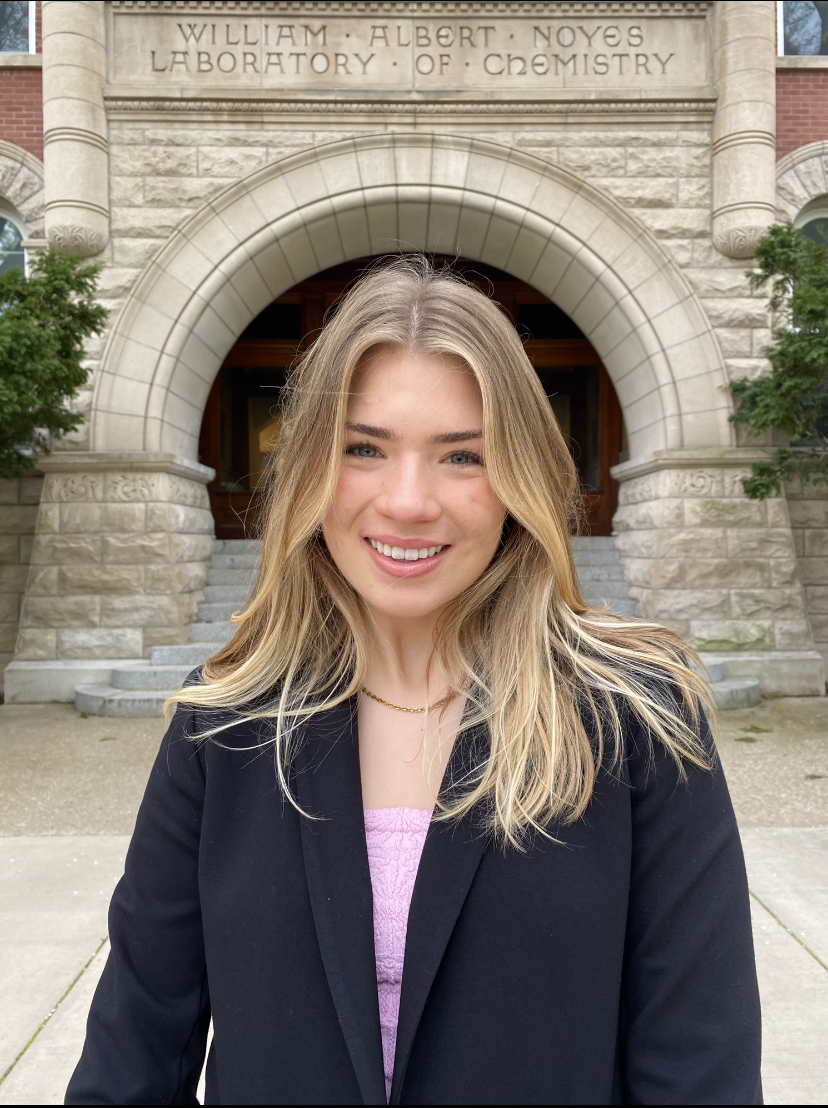 Lily Wenger, biochemistry.
Lily Wenger, biochemistry.Lily Wenger is majoring in biochemistry with a minor in chemistry and a certificate in neuroscience. Her Beckman faculty collaborator is Jefferson Chan, an associate professor of chemistry.
"Currently, there is little understanding of the mechanisms connecting the effect of oxygenation of the tumor microenvironment, or TME, on the cancer stem cell, or CSC, phenotype because no technology exists with enough spatial resolution to study these relationships. In response, we have designed a novel logic-gated probe, which links reporters of hypoxic conditions in the TME and of CSCs denoted by the biomarker of aldehyde dehydrogenase 1A1. This probe is impactful because CSCs pose challenges for treating cancer as traditional methods can enrich them, in turn creating more aggressive cancers with higher potential for recurrence."
2023 Carle Neuroscience Institute Undergraduate Research Award
The Carle Neuroscience Institute Undergraduate Research Award offers collaborative summer research projects in magnetic resonance neuroimaging. Research will take place at the Beckman Institute and the Carle Neuroscience Institute.
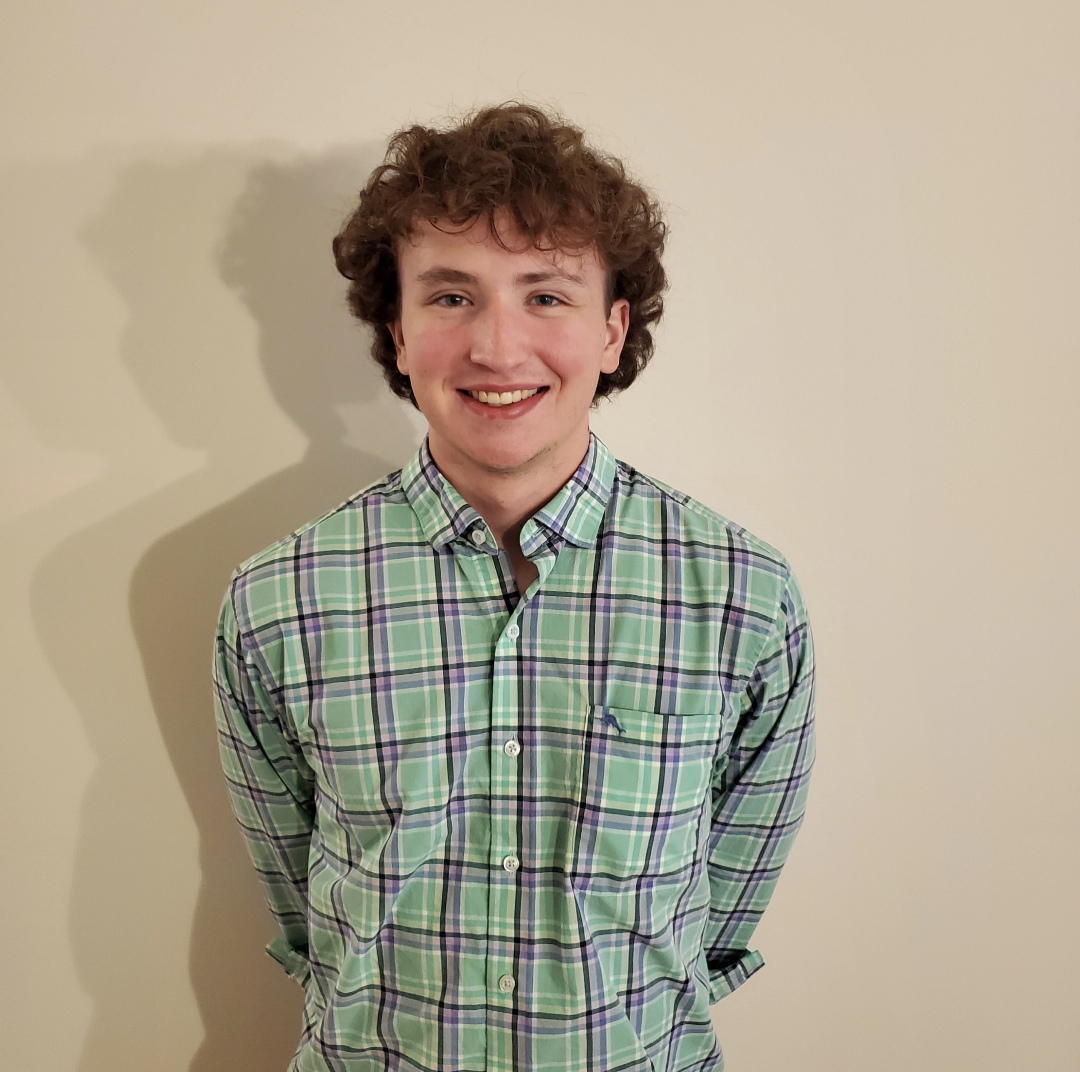 Matt Babik, biochemistry.
Matt Babik, biochemistry.Matt Babik is majoring in biochemistry.
"My current research involves studying Fragile X Syndrome, an autism spectrum disorder, and the molecular pathways that can be used to treat its symptoms. What inspired me to apply for the fellowship was not only to further expand my interests in neuroscience, but also to gain clinical knowledge on neuroimaging. As I intend to pursue an M.D/Ph.D., I am most excited to use these opportunities to directly explore the connection between the clinic and the lab bench."
2023 Erik Haferkamp Memorial Award for Undergraduate Research
The Erik Haferkamp Memorial Award for Undergraduate Research allows a promising undergraduate neuroscientist to pursue research at the Beckman Institute during the summer. The $3,000 award is supported by friends and family in memory of Erik Haferkamp.
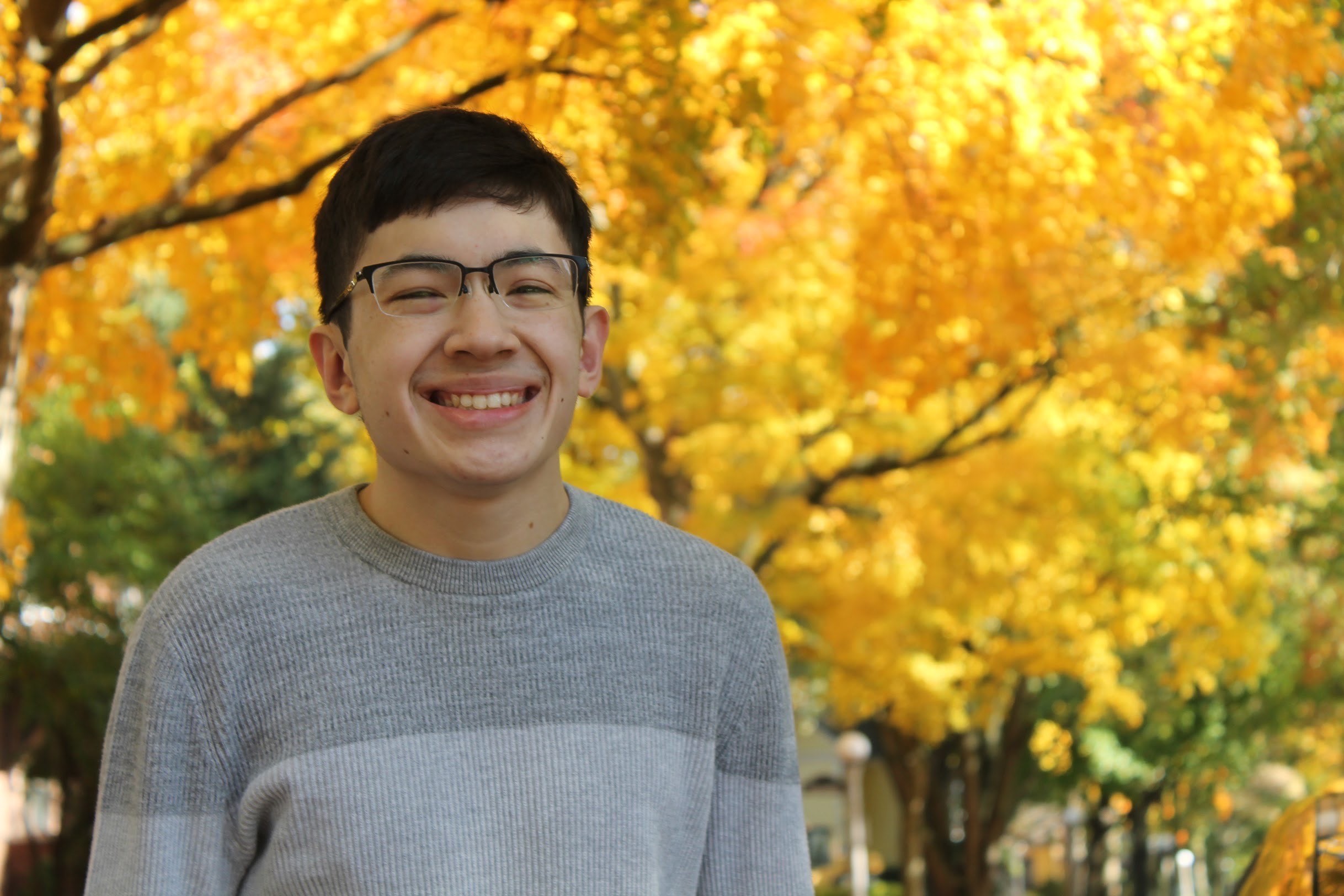 Austin Douglas, molecular and cellular biology.
Austin Douglas, molecular and cellular biology.Austin Douglas is a junior majoring in molecular and cellular biology. His Beckman faculty collaborator is Dr. Dan Llano, an associate professor of molecular and integrative physiology.
"There is currently not a way to classify neurons imaged using a new form of high-resolution of imaging known as multiphoton microscopy. This imaging technique allows us to image individual neurons in behaving animals. My research will use machine learning algorithms to classify neurons imaged using this technique and will develop models to predict how neurons will respond to acoustic stimuli."
2023 Thomas and Margaret Huang Award for Graduate Research
The Thomas and Margaret Huang Award for Graduate Research supports graduate students studying human-computer intelligent interaction. The $3,500 award is supported by the Huang Fund.
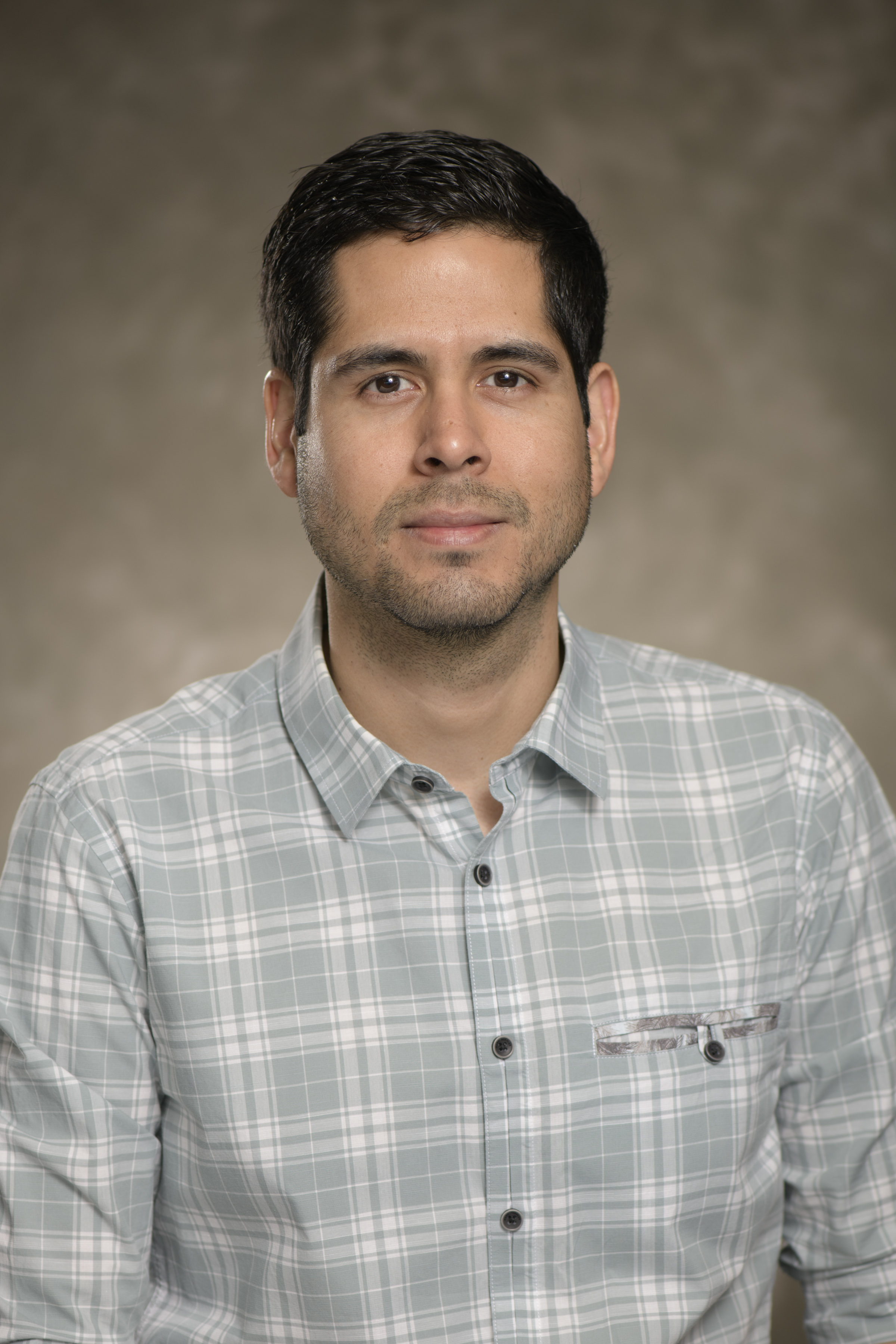 Renan A. Rojas-Gomez, electrical and computer engineering.
Renan A. Rojas-Gomez, electrical and computer engineering.Renán A. Rojas-Gómez is a Ph.D. candidate in electrical and computer engineering. His Beckman faculty collaborator is Minh Do, the Thomas and Margaret Huang Endowed Professor in Electrical and Computer Engineering.
"Our main objective is to develop a state-of-the-art multi-omics data analysis framework. Specifically, we aim to incorporate multimodal data at multiple body scales (e.g., molecular, anatomic and tissue scales) to obtain a holistic understanding of cancer. By integrating different body scales with multimodal data sources and weakly supervised deep learning techniques, we intend to improve the development of next-generation drugs and clinical treatment of cancer-related diseases."
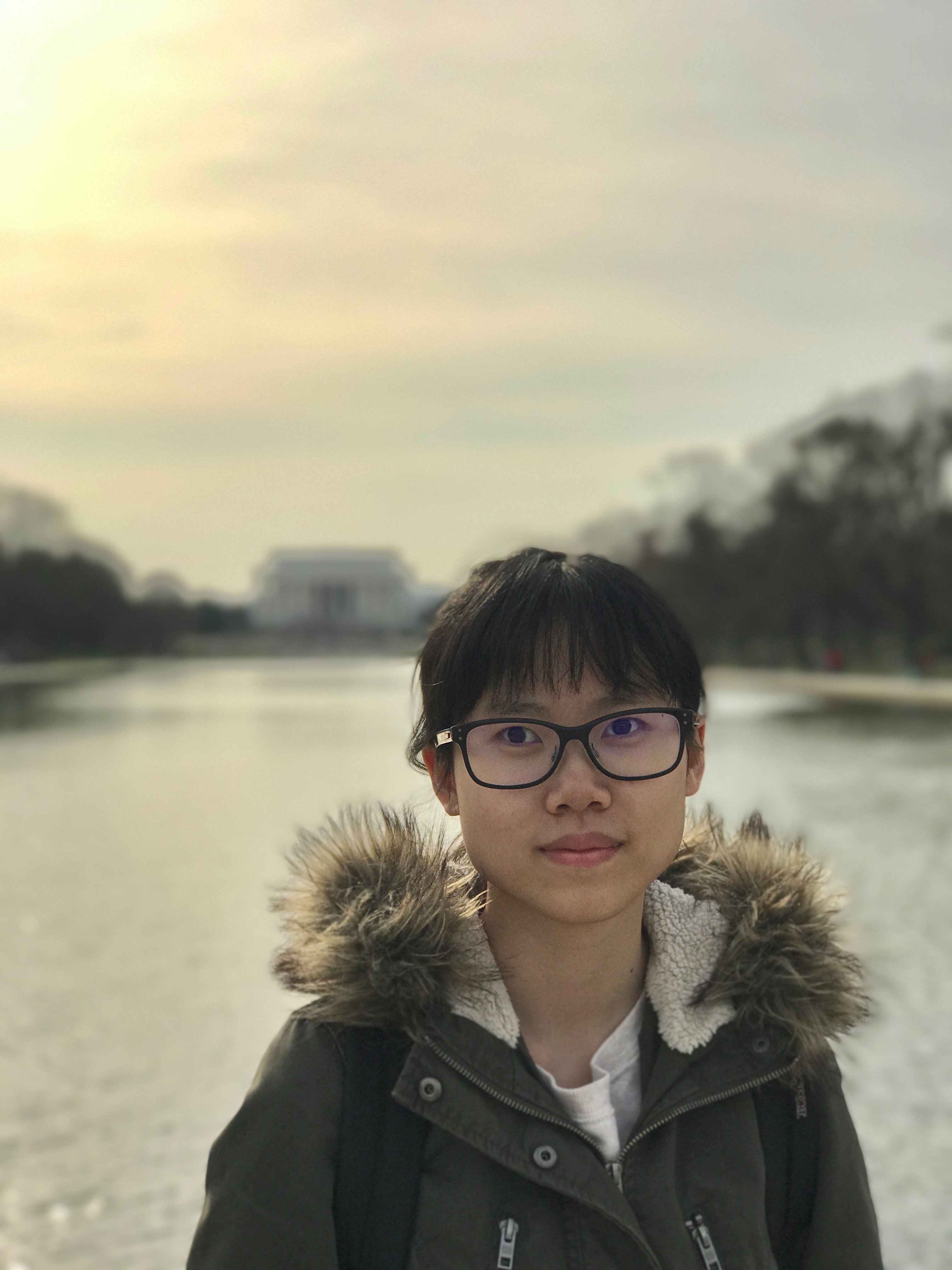 Maxine He, Neuroscience Program.
Maxine He, Neuroscience Program.Maxine He is a fourth-year Ph.D. student in the Neuroscience Program. Her Beckman faculty collaborator is Manuel Hernandez, a research affiliate in the Department of Biomedical and Translational Sciences and the Department of Kinesiology and Community Health.
"Early stress and anxiety detection and monitoring are crucial for improving mental wellness, and wearable technology shows promise as a solution. By using multi-modal physiological signals from wearables in conjunction with machine-learning algorithms, I aim to provide insights into detecting stress and anxiety in humans. Eventually, I hope to shed light on inter-individual variance in the response to stress and to bridge the gap in our understanding of the challenges and the potential of personalized stress and anxiety detection."
2023 Nadine Barrie Smith Memorial Fellowship
The Nadine Barrie Smith Memorial Fund supports female engineering graduate students who are conducting research in the general field of medical imaging at the Beckman Institute.
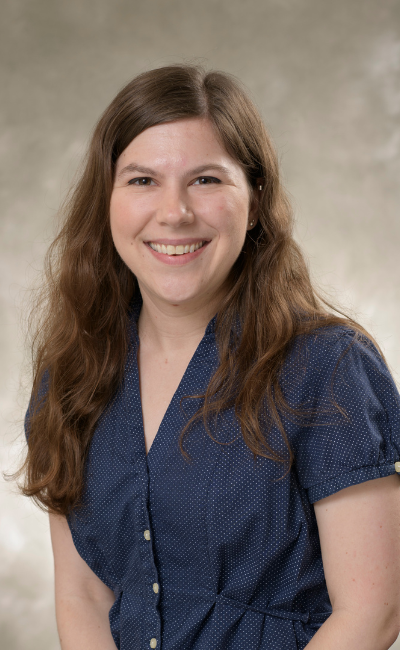 Jenna Cario, electrical and computer engineering.Jenna Cario is pursuing her Ph.D. in electrical engineering. Her Beckman faculty collaborator is Michael Oelze, a professor of electrical and computer engineering.
Jenna Cario, electrical and computer engineering.Jenna Cario is pursuing her Ph.D. in electrical engineering. Her Beckman faculty collaborator is Michael Oelze, a professor of electrical and computer engineering.
"When breast cancer patients undergo certain types of chemotherapy, the passive metal clips that are used to mark the areas being treated can become hard to see over time in ultrasound and make imaging these areas difficult. I am working on an electronic clip design that actively sends a signal back whenever it is imaged, instead. With this electronic clip, we hope to make ultrasound imaging easier for these patients so that they don't have to have more inconvenient or uncomfortable procedures done."
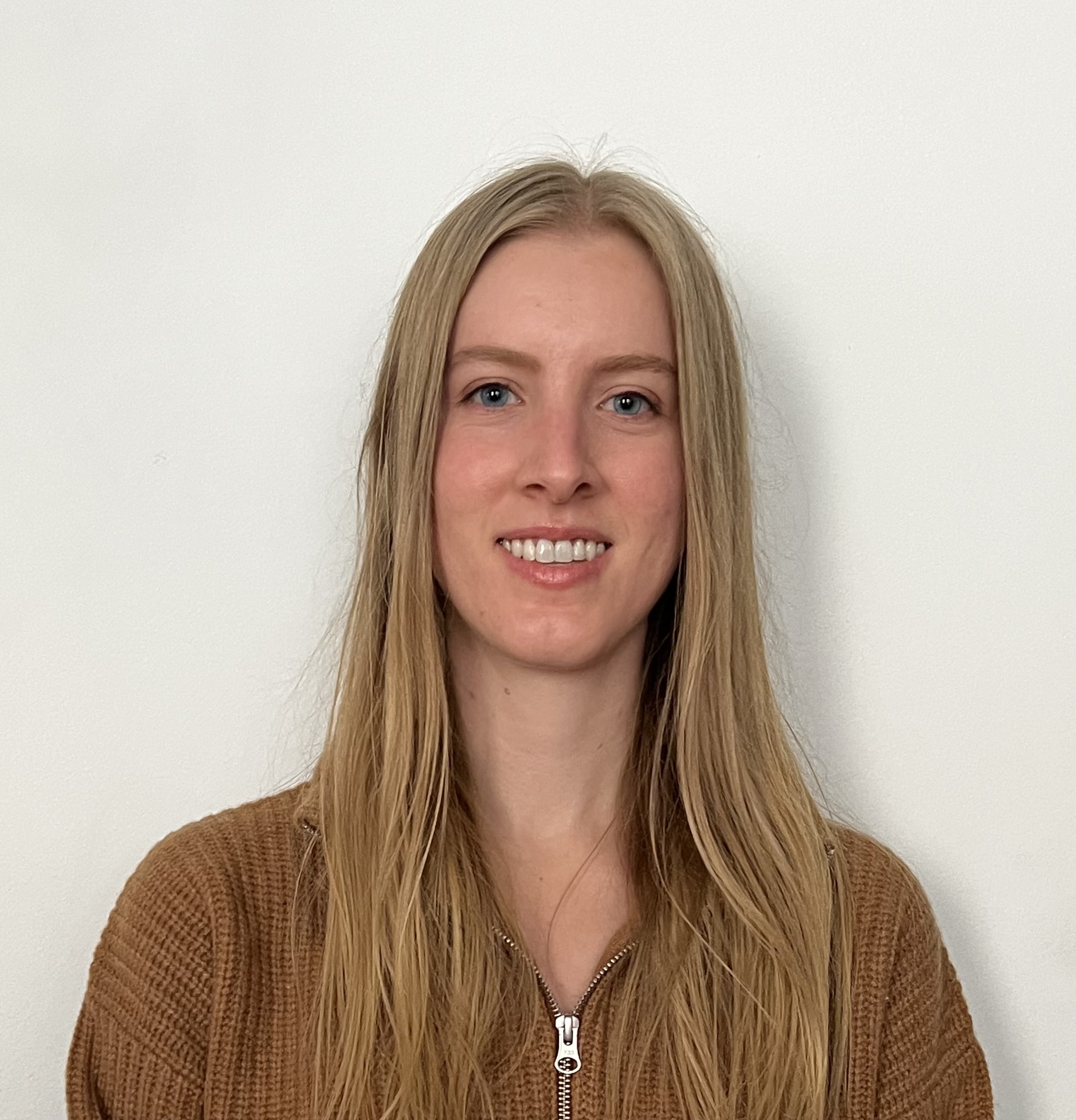 Laura Rosok, Neuroscience Program.
Laura Rosok, Neuroscience Program.Laura Rosok is a second-year predoctoral student in the Neuroscience Program. Her Beckman faculty collaborator is Naiman Khan, an associate professor in kinesiology and community health.
"I aim to better understand the relations between cognitive function and nutritional factors in children. Specifically, I use MRI, EEG, cognitive batteries, carotenoid status, and blood markers to quantify how childhood dietary and developmental factors may relate to executive function, memory, and visual processing. As there is limited scientific evidence surrounding recommended nutrients and their daily intakes for specific outcomes, not to mention that childhood represents a critical period of functional and structural organization in the brain, it is essential to determine what nutrients are needed for optimal brain health in children and in what quantities."
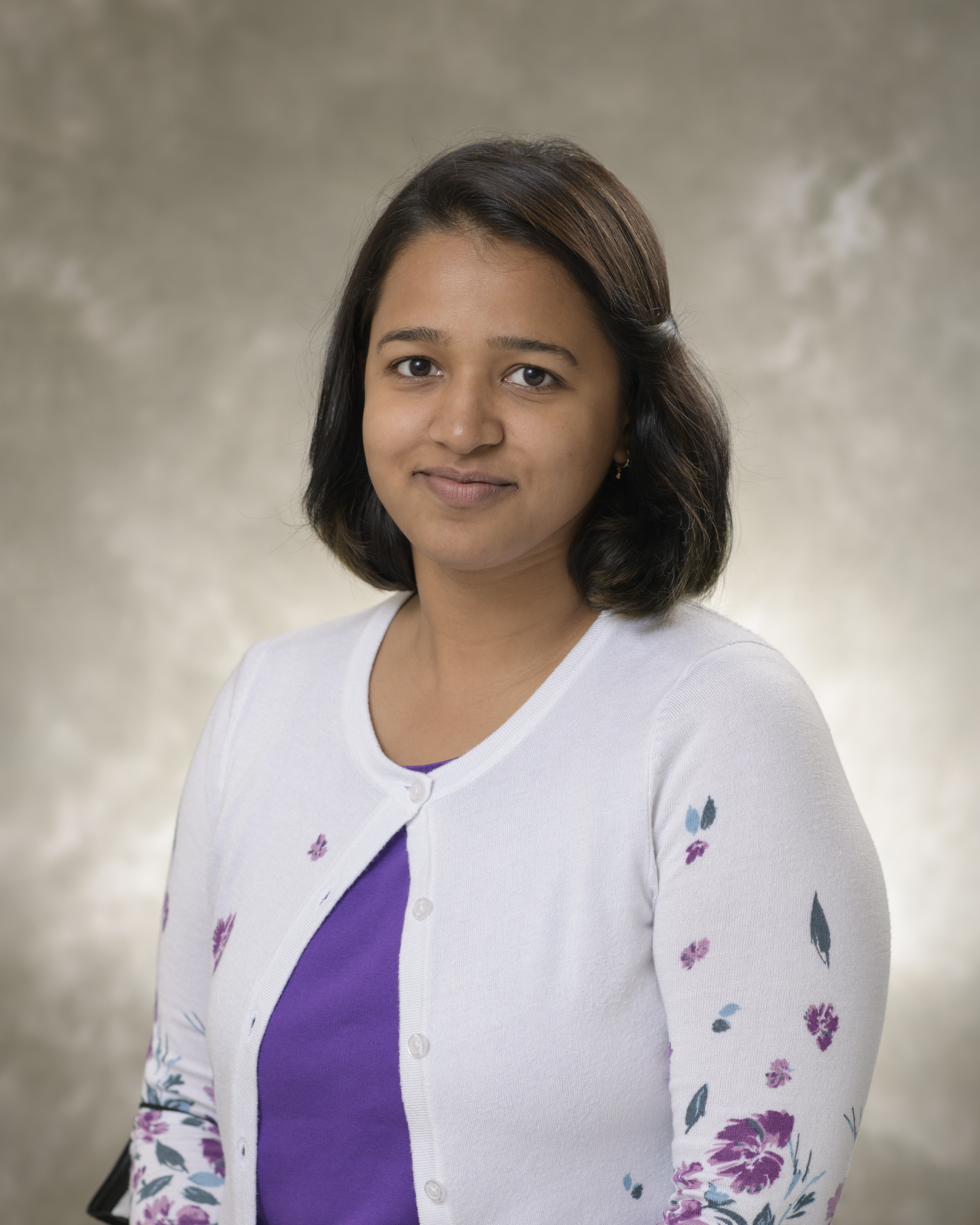 Shagun Ajmera, Neuroscience Program.
Shagun Ajmera, Neuroscience Program.Shagun Ajmera is pursuing her Ph.D. in the Neuroscience Program. Her Beckman faculty collaborator is Fatima Husain, a professor of speech and hearing science.
"Advanced neuroimaging techniques like functional MRI provide large brain signal data at high-resolution, yet studies of neurological disorders remain under-powered owing to contrastingly smaller participant counts. Thanks to data sharing practices, heterogenous sources of similar data, such as brain activity during rest, can be leveraged as a benchmark for 'control' conditions. My goal is to deploy machine learning in order to harmonize publicly available large fMRI datasets with the data collected in our lab for tinnitus, a neurological hearing disorder. With the advantage of data diversity, machine learning models will generalize well, thereby identifying robust and replicable neural characteristics of tinnitus relative to control groups. Successful implementation of such a data harmonization method can pave way for similar application in other brain disorders as well."
Beckman Institute for Advanced Science and Technology